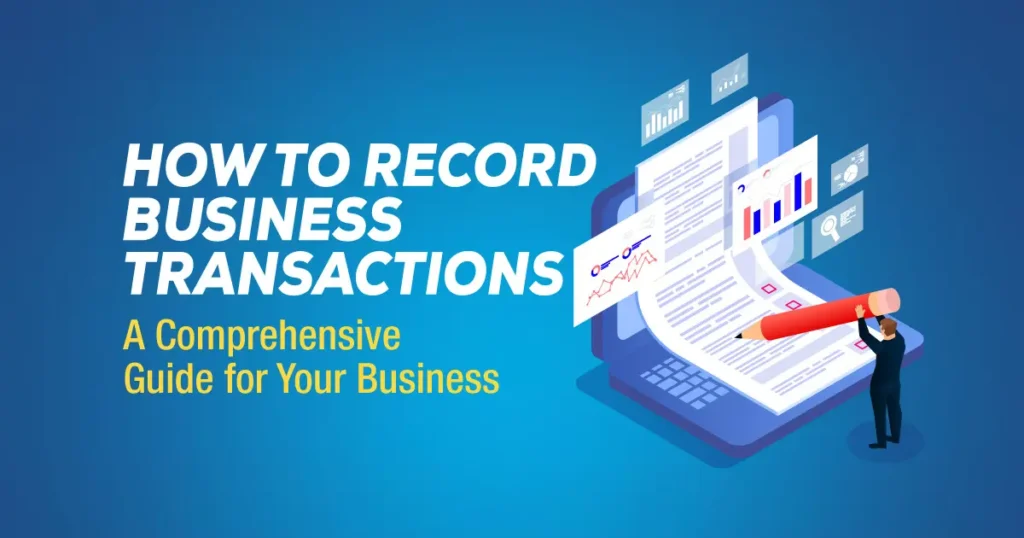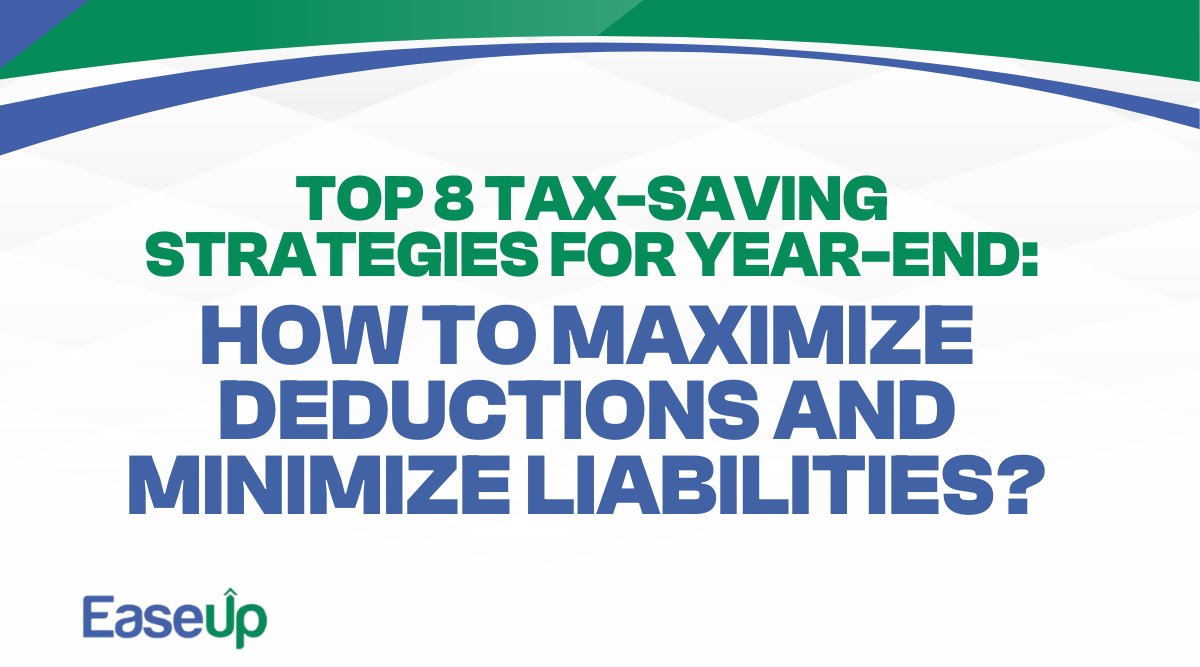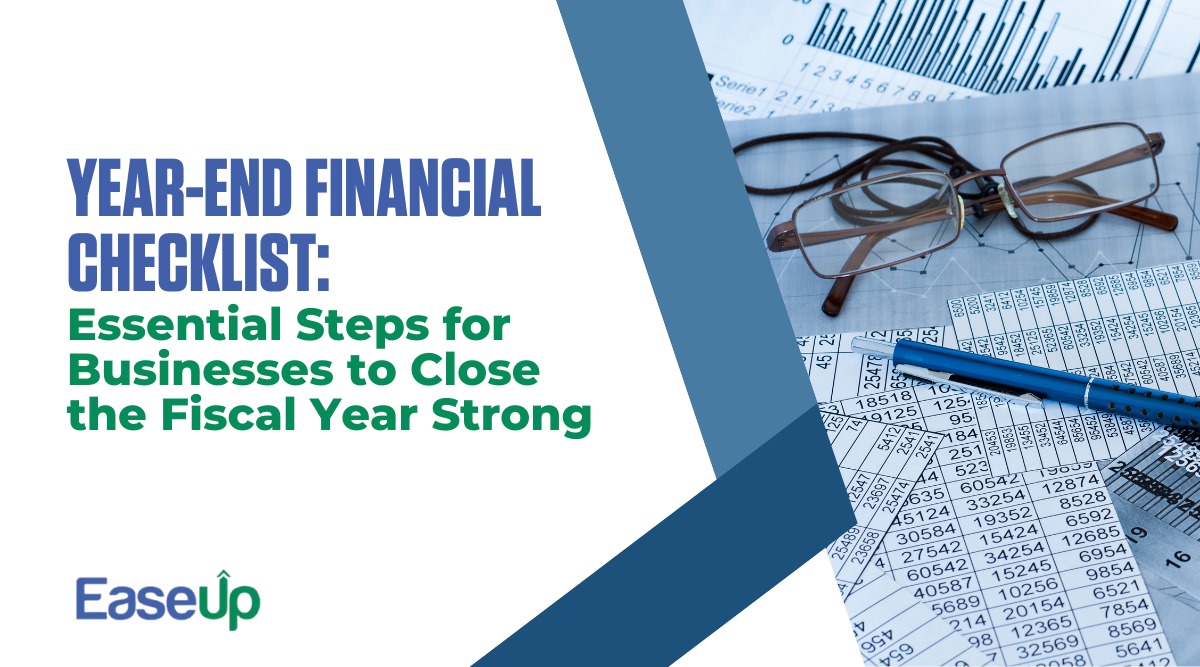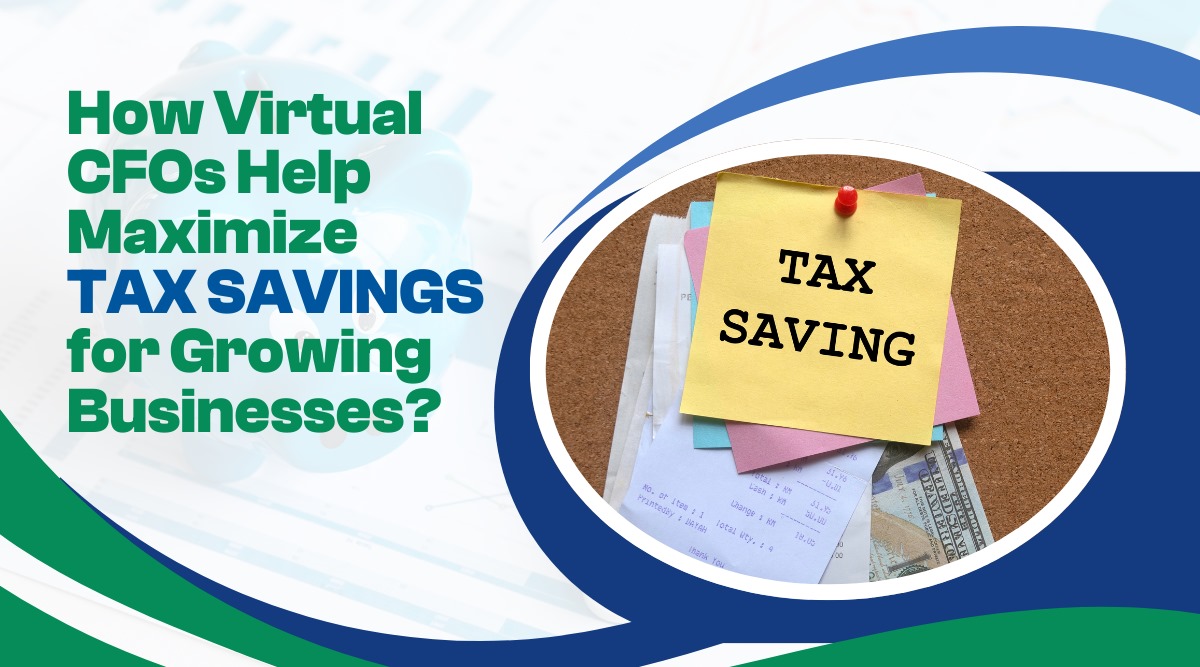

+91 9826266300

10.00 AM - 7.00 PM


How to Record Business Transactions: A Comprehensive Guide for Your Business
Published at: Nov 14,2023

In the dynamic world of business, one of the foundational pillars for success is the effective management of financial information. Knowing how to record business transactions accurately is not just a legal requirement; it is crucial for making informed business decisions. In this blog, we’ll explore the essentials of recording business transactions, the challenges that may arise, and how leveraging professional services like EaseUp can streamline this fundamental process.
Steps to Record Business Transactions
Recording business transactions involves several key steps that ensure all financial activities are documented systematically. Here’s how you can keep your business’s financial health in check:
1.Identify the Transaction: Every entry begins with recognizing a transaction that affects the financial position of your business.
2.Prepare the Source Document: Create or obtain a document that serves as evidence of the transaction, such as an invoice, receipt, or bank statement.
3.Analyze the Impact: Determine which accounts are affected and how. This involves understanding the accounting equation and the rules of debit and credit.
4.Record in the Journal: Enter the transaction in the appropriate journal, ensuring the debits and credits are equal to maintain the accounting equation’s balance.
5.Post to the Ledger: Transfer the journal entries to the general ledger where each account’s balance is updated.
6.Review and Adjust: Regularly review the entries for accuracy and make any necessary adjustments.
7.Prepare Financial Statements: Use the ledger balances to prepare the income statement, balance sheet, and other financial reports.
8.Close the Books: At the end of the accounting period, close the temporary accounts to prepare for the new period.
Challenges in Recording Business Transactions
The process, while systematic, is not without its challenges:
1.Complex Transactions: Some transactions are not straightforward and may involve several accounts or complex regulations.
2.Volume of Transactions: A high volume of transactions can lead to errors or omissions if not managed properly.
3.Changing Regulations: Keeping up with financial reporting standards and tax laws can be daunting.
4.Technological Advancements: The constant evolution of accounting software requires businesses to stay updated with the latest features and best practices.
How Can EaseUp Help in Recording Business Transactions
EaseUp stands at the forefront of financial consultancy, offering a broad spectrum of services that cater to startups, tech companies, and small to medium businesses. Here’s how EaseUp can assist in the process of recording business transactions:
1.Expertise: Leveraging the vast experience of certified accountants who are well-versed in the latest accounting standards and technologies.
2.Comprehensive Services: From accounting services to financial advisory, EaseUp offers a one-stop solution for all financial recording needs.
3.Technology Integration: Implementing the latest accounting software tailored to your business requirements for efficient and accurate transaction recording.
4.Training and Support: Providing training to your in-house team to ensure seamless operation and utilization of accounting systems.
5.Regulatory Compliance: Ensuring that all transaction recording complies with current tax laws and financial regulations, mitigating the risk of non-compliance.
6.Customized Solutions: Offering personalized services like virtual CFO and financial modeling to align with your business’s unique needs.
Conclusion
Knowing how to record business transactions accurately is a critical aspect of running a successful business. While the process can be intricate and challenging, the advent of sophisticated accounting solutions and the expertise of financial consultants like EaseUp have made it more manageable. By partnering with EaseUp, businesses can not only navigate the complexities of transaction recording but also gain insights and support that propel them towards sustainable growth and financial clarity.

CA Aditya Chokhra
December 22, 2025

Empower Your Business with Expert Financial Consulting
Latest Post
Leave a Reply

Contact us and subscribe to our newsletter to receive expert advice and industry updates.

Mumbai: A-116-1st Floor, Super Shopping Complex, Bajaj Cross Road, Near Kandivali Station, Kandivali (W), Mumbai 400067.
Ahmedabad: 315 Abhinav Arcade, Nr. Kothawala Flats, Paldi, Ahmedabad 380007.
Pune: B 602, The Onyx, Pink City Road, Shankar Kalat Nagar, Pune 411057.
Gurgaon: 1123 JMD Megapolis, Sector 48, Gurgaon - 122018, Haryana.
Bhilwara: C - 147, Shashtri Nagar, Bhilwara (Raj).
Surat: 6019, World Trade Center, Ring Road, Surat - 395002.
Copyright © 2025 Easeupnow. All rights reserved.


















